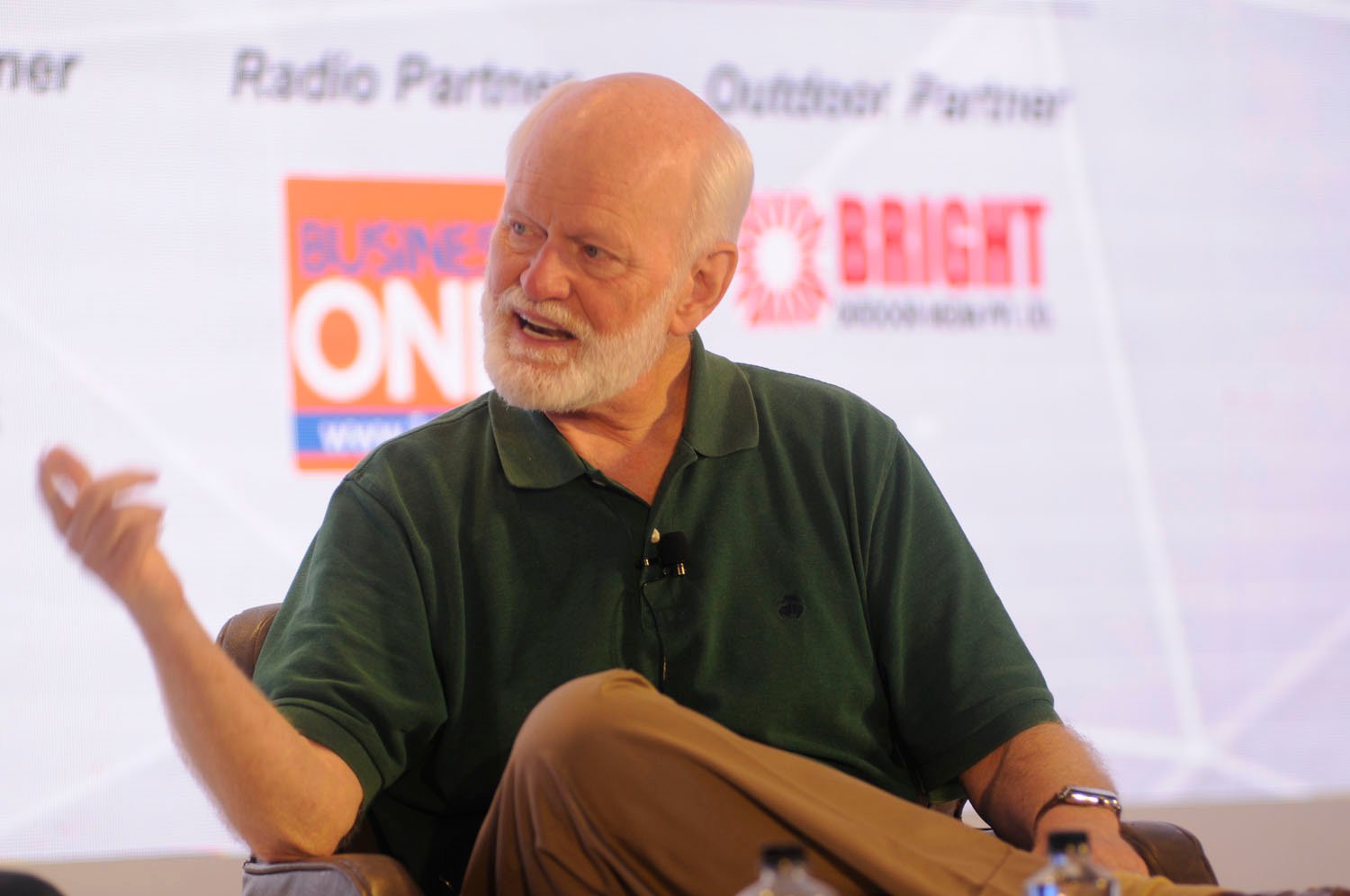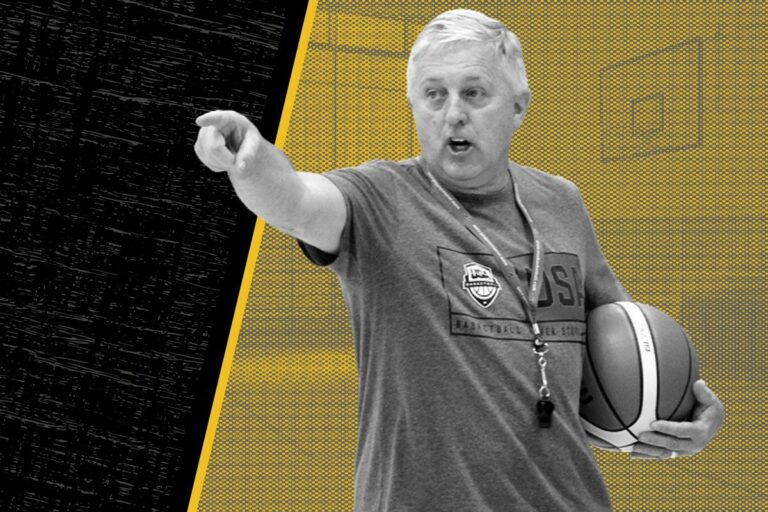Follow the Daily Questions Practice For Peak Performance
- The secret to great leadership isn’t about having the right answers—it’s about asking the right questions.
- The key to continual improvement is continual reflection.
- Good leadership strategies depend on honesty, humility, and a little vulnerability
After decades of working with business executives—inspiring CEOs of Fortune 500 companies to become more effective leaders—business leadership coach Dr. Marshall Goldsmith understands that the key to continual improvement is continual reflection.
For the benefit of our teams and the people we serve, it’s so important to continue to grow as leaders. But in the rush of a jam-packed season, refining your leadership philosophy can take a backseat to other matters. Finding the time and space to critically evaluate our coaching may seem like a daunting undertaking.
Goldsmith asks himself the same six simple yes-or-no questions every single day. This practice of asking six daily questions offers Goldsmith and his clients a bite-sized, repeatable framework to actively reflect on their leadership.
Goldsmith says this six-question approach works so well because, “It forces us to confront how we actually live our values every day. We either believe that something matters or we don’t. If we believe it, we can put it on the list and do it! If we really don’t want to do it, we can face reality and quit kidding ourselves.”
Asking the Right Questions, the Right Way
Marshall Goldsmith’s daily questions focus on personal accountability. Much like asking your team members to own their individual success, you need to own yours. The brevity of this model is a byproduct of its genius; the “active question” framing is really the most important part of the process.
Goldsmith starts every question with the same phrase:
“Did I do my best to…?”
Framing each question in this way pushes you toward your highest potential. While there are many aspects of a given activity or competition that are out of your control (e.g. the opponent, the judges, the conditions, or the crowd), there are many things that are well within your capacity to change. Are you doing your best to control the things you can control?
Marshall Goldsmith’s daily questions urge leaders to take ownership of their leadership. Pro-tip: you can create your own daily questions too.
1) “Did I do my best to set clear goals?”
In order to effectively evaluate yourself, you need to have a clear vision of what objective you’re working toward.
This question adds value to your routine—especially if you feel like you’re just going through the motions. Every day has potential, so how can you make the most of it? Setting goals holds you accountable to yourself and to the people you are leading. Take charge of your program as a leader and work actively with your team to define your objectives.
Especially for leaders faced with short seasons, this question is the perfect way to map out your time—no day should be a waste of energy. Even in the span of a week, you can work toward five small goals or one larger goal. Use this first daily question to anchor your season with purpose.
2) “Did I do my best to make progress toward goal achievement?”
Now that you have established your goals, how are you going to achieve them? It’s this question, says Goldsmith, that ensures you are working to transform your words into action.
Of course, when it comes to bigger goals, it can feel overwhelming to get started. That’s why Goldsmith urges us not to forget one simple truth: tasks become more manageable when you break them down into smaller pieces. Think in terms of daily, weekly, monthly benchmarks. Goals will feel more attainable in the long run, and you will receive positive reinforcement as you take measurable strides toward your goal—no matter how small or large those strides may be.
You don’t have to necessarily achieve all of your goals at the end of the day. But you do have to put in the work, every day. Hold yourself accountable to pursuing your goals—no matter how daunting they seem. Your team members will follow suit!
3) “Did I do my best to find meaning?”
In leadership and in life, you are bound to run into setbacks. While it can feel like you’re a million miles away from achieving your goals, it’s important to make each day impactful. Goldsmith urges us to remember that there is more to life than winning or losing; find those things in your work that drive you, beyond typical definitions of “success.”
Whether you’re the coach of a football team or the director of the school play, there’s more to life than what happens on the field or the stage. How can you help your students excel not just in their activities but in the rest of their lives? How can you champion them as they develop into the leaders of tomorrow?
You are building better people, and that all starts with how you lead. As we’ve heard time and time and again here on Leading Edge, your team members will never care how much you know until they know how much you care.
4) “Did I do my best to be happy?”
This is regarded as both the most important and most overlooked of Marshall Goldsmith’s daily questions. We all want to be happy in life, but it’s easy to lose sight of the things that bring us joy when we’re caught up in the frantic chase for that elusive district championship or state title.
Goldsmith reminds us that we don’t wake up one day and realize that we are happy; instead, happiness is a process that we discover through intention. It’s great to achieve our goals, but if that achievement doesn’t also support our happiness, that achievement will feel hollow. To put it another way, as Ralph Waldo Emerson once said, “It’s not the destination, it’s the journey.”
Happiness comes when we follow our passions. As leaders, this passion is what drives us to sacrifice for our goals and for our team, knowing the joy the process will bring.
So, by asking this question daily, you remind yourself to set happiness as a priority for you and your students. In the midst of the grind, you won’t lose track of what matters most. This way you and your team will find joy not only in reaching your goals, but also in the process of working toward them.
5) “Did I do my best to build positive relationships?”
Don’t be tempted to change this question to, “am I well-liked?” While it is important to be respected by your team members, good leaders don’t focus purely on their image. Instead, they focus on team building, the success of the team and the quality of the relationships they build.
This fifth daily question de-centers the leader and prioritizes the team. Goldsmith reminds us that any organization rooted in servant leadership will also have a strong foundation of trust and mutual respect.
You can’t control whether every member of your team likes you, but you can always strive to build functioning working relationships with everyone. Moreover, when you shift your focus towards team building and fostering positive connections, you will lead with openness and vulnerability, which promotes trust and buy-in.
Through this daily question, Goldsmith encourages you to take charge of your relationships with your team members, rather than feeling passive or helpless.
6) “Did I do my best to be fully engaged?”
There’s no way around it: dedicated leaders are busy. You have mountains of work piled up and not even a second to spare. Maybe, though, three weeks from now, you’ll find some free time. Maybe, in three weeks, you’ll have the freedom to take a step back and focus on your larger priorities.
Unfortunately, that mythical ‘three weeks’ is no more than a dream. There’s never going to be a time where you’re less busy. Goldsmith reminds us, in fact, that tomorrow could bring even more chaos.
That’s why it’s important to find ways to fully engage with each and every moment. Challenge yourself to be fully present with your team, rather than daydreaming about a time when you’ll have more energy to spare.
You’ll get more out of your day when you dedicate even a few minutes to making sure you are present and engaged. Find a moment of calm amongst the chaos to check in with yourself. Are you showing up for your team? Are you having fun? Are you being your best self for the people you serve? Are you leaving anything on the table?
Your team will know if you aren’t engaged; Goldsmith knows better than most that team members won’t follow a disengaged leader. Ask yourself this sixth and final daily question to hold yourself accountable to your team—and Goldsmith guarantees your team will become more engaged as a result.
Marshall Goldsmith’s daily questions may only take a few minutes out of your day to answer, but will still inspire critical reflection. They help you reframe your day around the things you can control, inviting you to check in with your goals, process, and wellbeing.
But while the mere act of posing these questions is powerful, Dr. Marshall Goldsmith reminds us that the follow-through is what will eventually lead to substantial change.
For his own practice, Goldsmith creates a spreadsheet containing each of the six daily questions. Each question is answered with a simple yes or no (with 1 meaning yes and 0 meaning no), providing him a visual representation of the objectives he’s meeting regularly and those he still struggles with.
Goldsmith has gone so far as to pay someone to call him daily to talk about the answers to his questions; even the experts know how hard it can be to follow through without outside support and accountability.
“I asked my wife Lyda (also a psychologist) if she thought this process would work as well with a computer-generated list of questions instead of a friend,” Goldsmith remembers. “She said, ‘No, it is a lot easier to blow-off a computer than a friend.’”
Maybe you can’t call someone daily. But at the very least, you can make your goals known to your staff, a friend, or even to your team members. This way, they can see that you are holding yourself accountable in the same way you ask of them.
If you have enjoyed this article, you might enjoy his recently published book, The Earned Life: Lose Regret, Choose Fulfillment.
Daily questioning is a great way to support the achievement of long-term goals. By constantly reflecting on your own performance, you will make progress in your leadership. Keep reflecting and keep questioning. With intention and follow-through, the results will come.











